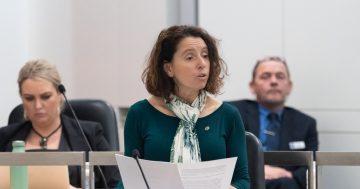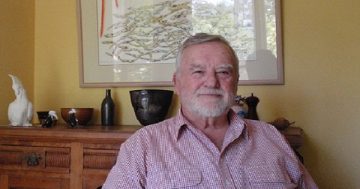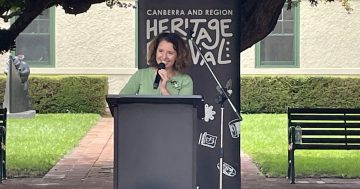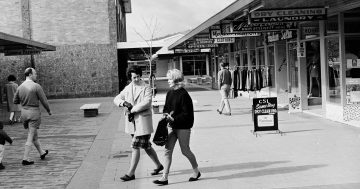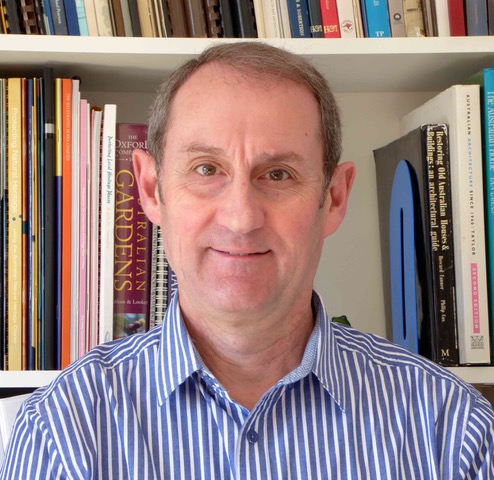
New chair of the interim Heritage Council Duncan Marshall. Photo: Australia ICOMOS.
Canberra architect and heritage expert Duncan Marshall will chair the new interim ACT Heritage Council, which has just been appointed to fill the gap left by the disbandment of the previous body due to a deteriorating workplace and a breakdown in relationships with government staff.
The nine new members include architects, conservation experts, a town planner and Aboriginal representatives.
The interim council is expected to be in place for at least a year, and it will play a key role in the ongoing review into the government’s heritage work.
Heritage Minister Rebecca Vassarotti dissolved the council in December and committed to undertaking a comprehensive reform of heritage in the ACT.
Concerns about a deteriorating workplace and a blowout in council response times leading to development delays came to light in August, and the council’s work was suspended with an urgent review ordered.
That review discovered structural and governance issues and confirmed that the council and ACT Heritage staff were unable to work alongside each other.
It also stated the strained Heritage Council relationships, together with “inefficient” ACT Heritage systems, “present an imminent risk to ACT Heritage sites”.
But much of the report has been kept secret, with Ms Vassarotti claiming she wanted to protect the privacy of the former council members.
Ms Vassarotti ordered a “large-scale review”, being conducted by Stenning & Associates, into how the government works with heritage, including both the workings of ACT Heritage and the structure and statutory functions of the Heritage Council under the Heritage Act 2004.
She said appointing a new council after a rigorous recruitment process was a significant step in the reform process and would allow important heritage activities to resume as needed.
“Future heritage laws, frameworks and arrangements must be fit for purpose in the ACT and reflect best practice from other jurisdictions,” she said.
“All of the council members bring unique expertise in diverse areas of heritage, including architecture, natural resource management, Aboriginal and European cultural heritage, archaeology, and nature conservation, as well as community and Aboriginal representation.”
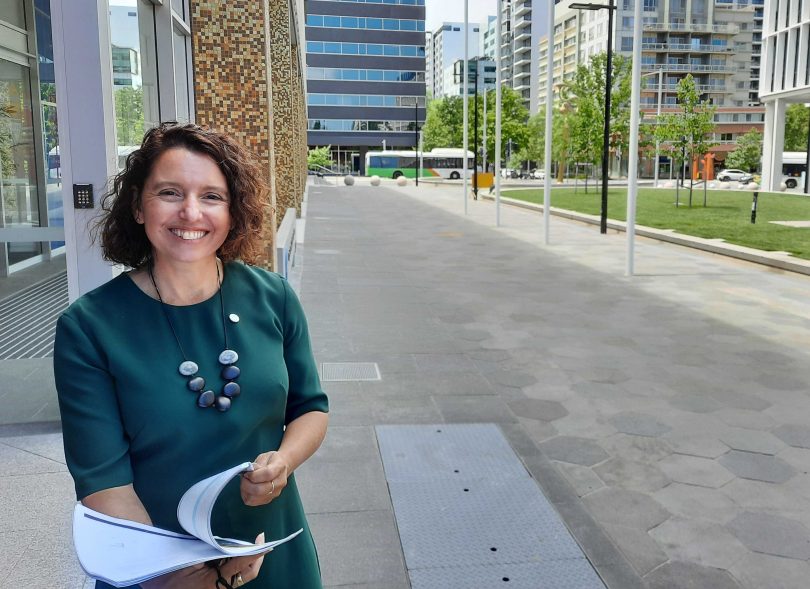
Heritage Minister Rebecca Vassarotti: all of the council members bring unique expertise. Photo: Ian Bushnell.
Mr Marshall is the former chair of the Heritage Council and an architect with 40 years of experience in heritage conservation across government and the private sector, including with the Australian Heritage Commission, as general secretary of the Australian Council of National Trusts and as a heritage consultant since 1993.
He has been responsible for multiple conservation planning projects of historic buildings and precincts in the ACT, including Old Parliament House, Lanyon and Cuppacumbalong Homestead Precincts, CSIRO Black Mountain and St John’s Church, Reid.
Mr Marshall said the ACT’s rich and layered heritage was appreciated not just by the local community but by many around Australia.
“The new council has a great deal of expertise and strong connections to the community, and it is determined to deliver an effective heritage system for the ACT, and to work with the ACT Government through the reform process,” he said.
His deputy is former senior federal and Queensland public servant Catherine Skippington, who will represent the community.
Ms Skippington has also been a consultant on natural resource management, cultural heritage, regulatory compliance, organisational culture and change management, and has a strategic understanding of heritage issues from managing contested or difficult heritage-related issues.
She is currently the chair of the Northside Community Services and the treasurer of the Woodlands and Wetlands Trust.
The other members are:
- Town planner Rachael O’Neill, who will represent the property ownership, management and development sector. She is a current member of Planning Panels Victoria, where she is also the deputy chair of the Panel and Advisory Committee, and Victoria’s Building Appeals Board.
- Archeologist Doug Williams, who has 30 years of experience working at senior levels in heritage management capacities in the NSW and Victorian governments, and with Commonwealth counterparts as executive officer of the Willandra Lakes Region World Heritage Area.
- ACT Architect David Hobbes, who has worked on the restoration and adaptation of heritage buildings and precincts. He is the chair of the Executive Committee for Urambi Village, a member of the Australian Institute of Architects (ACT Chapter) Practice Committee, and an examiner for the ACT Architects Board.
- Archaeologist Catherine Clark, who has 30 years of experience in building conservation and heritage management in Australia and the UK. She worked in heritage and culture roles for the NSW Government from 2008-14 and the Welsh Government from 2014-20. She was a member of the Australia Heritage Council in 2013-14.
- Architect Alistair Henchman, an expert on nature conservation, town planning and urban design as well as a landscape architect. He has worked for the ACT and NSW Governments in roles responsible for preserving and managing significant heritage sites in metropolitan and regional areas. He is the community representative on the Ginninderry Conservation Trust Board.
- Canberra architect and built-heritage specialist Alanna King, who has collaborated as part of multi-disciplinary heritage teams and worked on key ACT buildings including the Kingston Arts Precinct, Gorman Arts Centre, Sydney and Melbourne Buildings, Civic Square Precinct, and MoAD at Old Parliament House.
- Karen Demmery, who will represent the Aboriginal community. A Wiradjuri woman from Dubbo, she has lived most of her adult life on Ngunnawal Country in Canberra and spent 15 years working with governments, the private sector and community organisations, in both urban and remote communities.
ACT chapter president of the Australian Institute of Architects, Jane Cassidy, welcomed the appointments.
“It’s pleasing to see diverse representation on the Heritage Council including those with proven track records and expertise in the management of heritage buildings and architecture in our national capital,” she said.
“The Institute has been calling for reform of heritage arrangements as our members and the community have been experiencing unacceptable delays for approvals on heritage projects. We’re pleased to see action is being taken.”












